Search Images
Browse Content (p. 245)
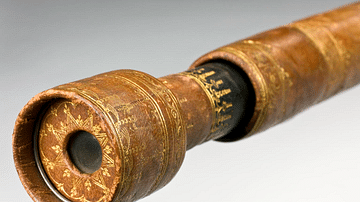
Image
Eyepiece of Galileo's Telescope
The eyepiece of a model of the telescope made by Galileo (1564-1642) c. 1608. Galileo made a telescope capable of x33 magnification and used it to make several important discoveries in astronomy. 970 mm x 60 mm. (Science Museum, London)
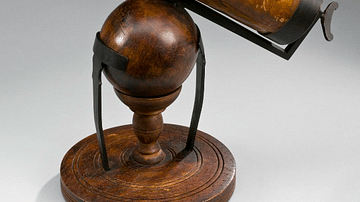
Image
Newton's Reflecting Telescope
A replica of the reflecting telescope invented and designed by Isaac Newton (1642-1727) in 1668. 160 mm x 275 mm x 295 mm. (Science Museum, London)
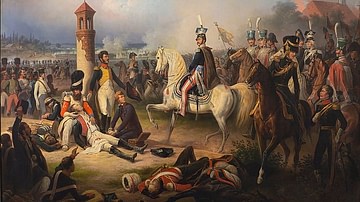
Image
Battle of Raszyn
The death of Cyprian Godebsk at the Battle of Raszyn (19 April 1809), part of the Polish front during the War of the Fifth Coalition. Prince Józef Poniatowski is depicted on horseback in the center. Oil on canvas by January Suchodolski, 1855...

Image
Tyrol Rebellion of 1809
The Tyrolean militia returns from war during Tyrol's rebellion against Napoleon in 1809, during the War of the Fifth Coalition. Oil on canvas by Franz Defregger, 1876.
Alte Nationalgalerie , Berlin.
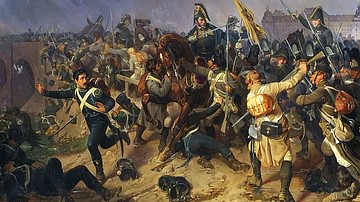
Image
Battle of Znaim
The Battle of Znaim, 10-11 July 1809, oil on canvas by Fritz Allemand, 1845.
Belvedere, Vienna.
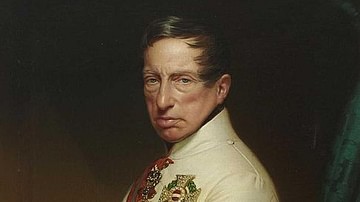
Image
Archduke Charles of Austria
Archduke Charles of Austria, Duke of Teschen (1771-1847), brother of Austrian Emperor Francis I, and one of Austria's most capable generals during the French Revolutionary Wars (1792-1802) and the Napoleonic Wars (1803-1815). He is best known...
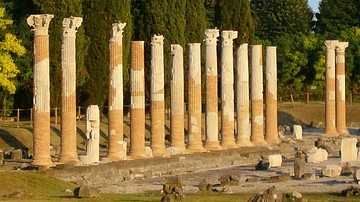
Image
Roman Ruins at Aquileia
Ruins of the Roman Forum in Aquileia, Italy.

Image
Aurignacian Lion Man Sculpture
Upper Paleolithic (Aurignacian) sculpture of a lion man, made from mammoth ivory, c. 40,000 years ago. Found at the Stadel cave at Hohlenstein Rock in the Lone Valley, township of Asselfingen, Germany.
Museum of Ulm, Germany.
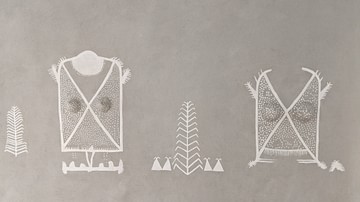
Image
Oldest Mural in Europe
This photo shows a reconstruction of the "Cult Wall" of Ludwigshafen, the oldest mural in Europe. The original painting was created around 3860 BCE, depicting hunting trophies of aurochs and bison, fine textiles, as well as a human torso...
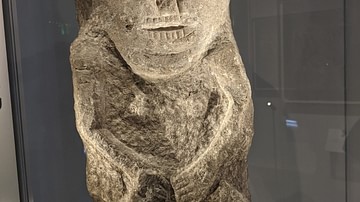
Image
Sheela-na-gig
Sheela-na-gig figure, carved from stone in Ireland, c. 1100-1200 CE. Such Sheela-na-gig figures prominently display their vulvas. Their meaning is still debated: as they were often found on churches and secular buildings in Ireland, Britain...